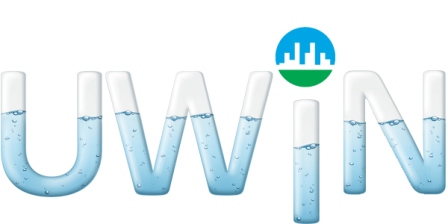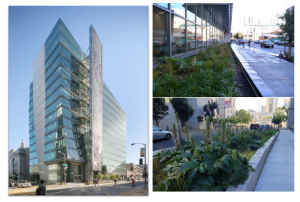Project B1-1
Project Team: Sybil Sharvelle, PI – Colorado State University
Arpad Horvath – University of California-Berkeley
Charles Glass – Howard University
Ali Mostafavidarani – Florida International University
Tom Meixner – University of Arizona
Mazdak Arabi – Colorado State University
Project Overview
Stormwater and wastewater discharges pollute our waterways. Meanwhile, use of these non-traditional water sources has the potential to enhance water efficiency in urban environments. A growing approach to enhance urban water sustainability is to minimize the import and export of water, creating net-zero water communities. Decentralized management of water, wastewater and stormwater may have the potential to enhance capacity for water reuse and create more resilient water systems. Conventionally, treatment of water has been managed at a municipal scale and is not integrated. While centralized management of water has made tremendous strides to provide safe drinking water and maintain water quality in receiving water bodies, there are inefficiencies in this approach. Failures at any point of the system can be catastrophic and water reuse can be more costly and energy intensive when conducted at a large scale.
Given issues with addressing aging infrastructure in the US, now is the time to consider innovative alternatives that enable integrated management of water, wastewater and stormwater. While some examples of building and community-scale systems that reuse wastewater and stormwater exist, the role of such systems to enhance resiliency of entire cities has not been determined. Additionally, the most appropriate scales and configurations of integrated water systems is unknown. Optimal solutions will vary by region and likely involve hybrid centralized and decentralized management structures where treatment of some water sources will be at the municipal scale and others will be at the building or community scale. The overarching goal of this project is to investigate the role of alternative water management solutions (including decentralized systems) to create multi-purpose water utilities that are capable of reacting to external pressures and determine most appropriate and robust solutions. The project team will evaluate water management solutions such as use of recycled water, graywater reuse, stormwater capture and use, green infrastructure and reduction of irrigation demand. Configuration and scale of these practices will be integral components of the study.


I would appreciate hearing from the research team if you’re interested in corresponding on the issue of utility-scale, real-time residential lot-level stormwater harvesting networks. RainGrid Stormwater Smartgrid Systems, a WE&RF LIFT candidate technology, is seeking avenues for research and implementation of community scale real-time stormwater smartgrid pilots.
Many thanks,
Thanks for your interest in UWIN! Your comment has been forwarded to the project PI.